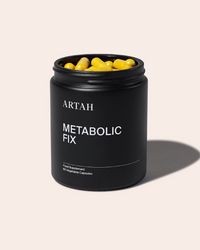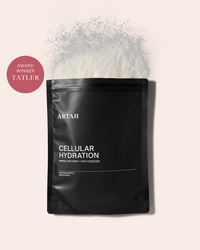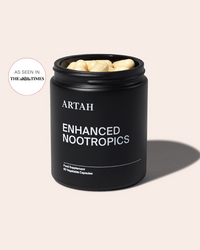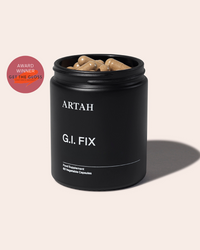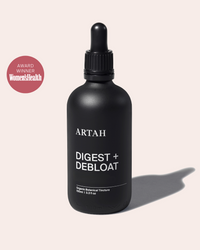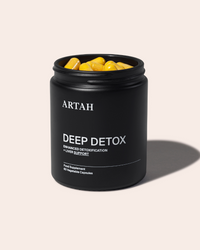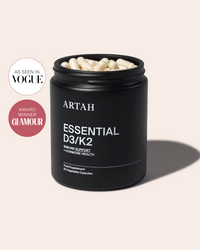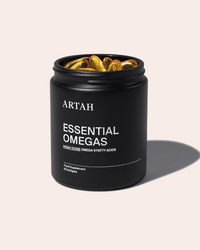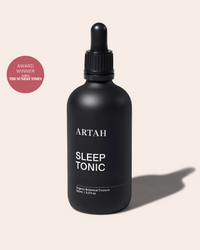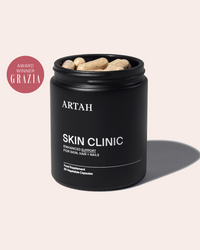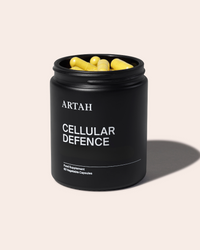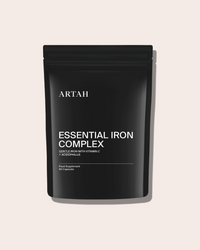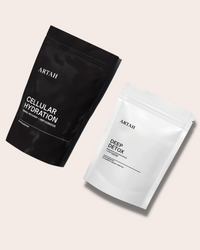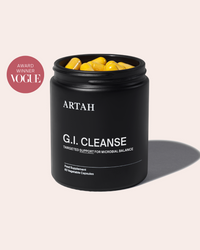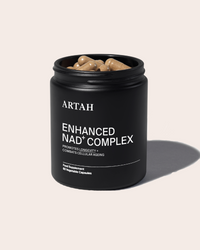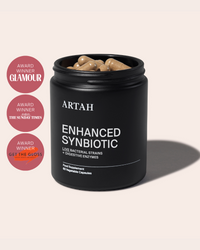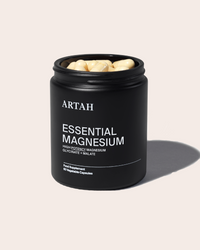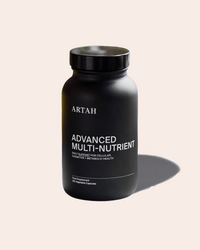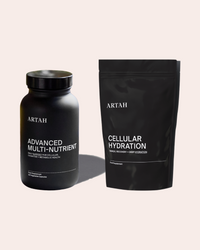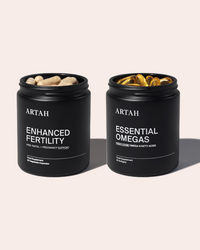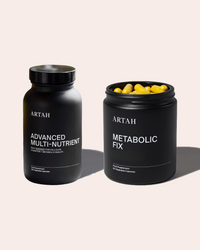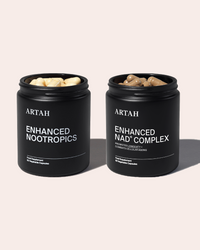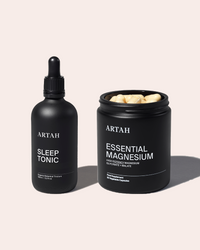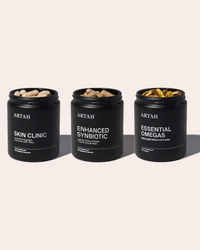WHY YOUR MIND NEEDS A WORKOUT TOO.

The best approach to mental health is a holistic one, which is why we sat down this week with our friend Zoe Aston, Therapist and Author, to talk about some of the most common challenges people are facing when it comes to their psychological well being, and some simple concepts to embrace to help shift your perspective.
What are some of the most common themes you are seeing right now when it comes to mental health and why do you think they're so prevalent?
At the moment the most common themes I see in both my clinical and corporate is how we as human beings handle our emotions - some would choose to call this theme ‘anxiety’. Due to the events of the last two years, many of us are more anxious at the moment or at least more aware of our anxious symptoms. In truth, anxiety is most often about repressed emotion. I prefer to look at what’s going on underneath the expression of anxiety, whether it’s physical, emotional, psychological, or physiological, because most often there is something at play that the experience of anxiety is defending against, if we can get to that, for most people, that sense of anxiety lessens or at least feels more manageable.
Another big one is around relationships and dating. Again, I think this is mostly due to being on the other side of feeling a bit trapped in lockdowns and controlled by social distancing rules. Interpersonal relationships are finally much more available, and our need for connection has never been challenged in the same way as it has throughout the pandemic. Many of my 18-30 year old clients felt that the pandemic forced them to pause their search for a partner or develop close adult relationships, and they feel they’ve missed out on a couple of fundamental years. Some have felt that going back into the dating and social scenes has been overwhelming. For others, the enforced isolation has changed their perspective on what their social needs are and they’ve chosen to go down the route of working on their self-esteem and finding that connection within themselves. If you relate to this you can get more support in my book ‘Your Mental Health Workout’ see weekly Workout Two - Social Events, and Daily Workout Two - Connection.
Lastly, a common theme which is ever present in my work is our relationship with food and drink. I have a number of clients who come to therapy for eating disorder or addiction treatment but more and more, especially post lockdown, I’m seeing more people who’ve never really needed to consider or face their relationship with what they put in their bodies coming into question. There are a mirage of reasons as to why this is coming up and often they are unique to the individual. What I can say is that considering your relationship with your nutrition and physical well-being is vital to your psychological well-being.
Your book is called "Your Mental Health Workout", can you share why you think it's important for people to work out the mind as much as the body?
Well yes, in fact there’s a rather relevant story behind YMHW. It was, in part, inspired by Rhian herself. I was working at a treatment center on Harley Street and attending Rhian’s ride classes around the corner. I noticed that there were a number of significant similarities between the people who came to the treatment center for group therapy and psychological support and the people who attended group fitness classes. I’ve always felt privileged for the therapy I’ve had over the years and the training I had, but the truth is I don’t believe it should be a privilege. I believe everyone should have access to information about how to look after their minds in exactly the same way we are constantly fed information about how to eat well, sleep well and exercise for the benefit of our physical bodies. So it got me thinking - wouldn’t it be great if there was a fitness programme for the mind!? The big difference of course is that we can’t see our minds in the same way we can see our bodies and we tend be afraid of things we cannot see so my goal is to help people witness their thoughts, feelings, and behaviours in a similar way we would observe results from our nutrition or workout regime. You can work on your body and be in the best physical shape of your life, but if your mind is out of shape and you don’t like yourself, or parts of yourself, it’s highly unlikely that you’ll be able to appreciate what you’ve got.
What are some simple ways people can start to take control of their mental health?
I am often asked about how we can ‘feel more in control’ of our lives, bodies, minds, workload, emotions - it comes up almost everywhere I go. The truth is, in my corner of the world, control is not a real thing. It’s an illusion that we create in order to feel more powerful for a period of time. I prefer to talk about helping people gain authority and agency over their thoughts, feelings and behaviour. Most of the intention behind the 5 week programme in Your Mental Health Workout is to move you towards this. In particular Daily Workout One - Mindfulness, is where I’d direct you, if ‘control’ is of interest to you. Mindfulness is the equivalent to hydrating the rest of your workout - it’s absolutely vital if you want to feel psychologically empowered.
Can you share an exercise or two from the book?
Sure, I’ve taken this particular exercise from the ‘Physio for your feelings’ section on the book. You’ll find the extended version on page 198.
I’ve picked this one because lots of us understand intellectually that being in touch with our emotions could be helpful, and that being with or in our feelings can be productive, but we don’t actually know how to do that. As I said at the start, many of our anxieties are related to repressed emotion, old and new, so this helps you take that first step.
- Step One: Identify the signals and sensations in your body.
- Step Two: If you can name the filing or emotion, go for it, if not find three worlds to describe it.
- Step Three: As you witness this feeling, observe how it changes.
- Step Four: Be curious about what message this feeling gives you.
You can write this down or just go through it as a mental checklist, but sometimes writing it can help you make sense of it at a distance rather than feeling consumed by it.
Can you share one piece of advice you would give anyone struggling with their mental health?
Put your pride aside and ask for help. No matter how ‘bad’ it is or how awful you feel, it’s NEVER too late to ask for help. You might be surprised what you find out about people when you start sharing your own difficulties. Likelihood is, there are people in your friends and family groups that have experienced something similar and will be able to relate.
Let's finish it off with some quick fire questions...
Zoe is leading a complimentary forum on Monday May 22nd -
https://artah.co/products/tackling-loneliness-with-psychotherapist-mental-health-specialist-zoe-aston
About Zoe:
Zoë is a London-based therapist, mental health consultant, speaker and author with a decade's experience working with mental health. She is currently the UK Mental Health Expert for Headspace and leads the therapeutic department at Central London wellbeing center Until.
Her private practice offers support for a range of emotional and psychological topics including addiction, eating disorders, trauma, anxiety and relationship issues, through a dynamic, holistic and integrative, person-centered approach.
Zoë is a registered and accredited member of the British Association of Counselling and Psychotherapy.Her first paperback, 'Your Mental Health Workout - A 5 Week Programme to a Healthier, Happier Mind'
is now available to buy in bookstores, online and as an ebook.





